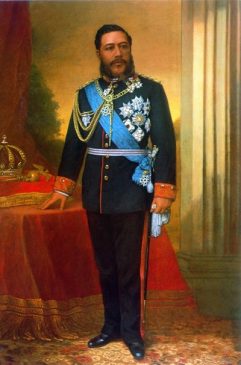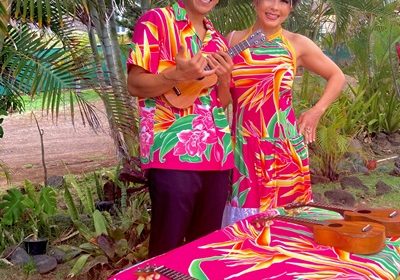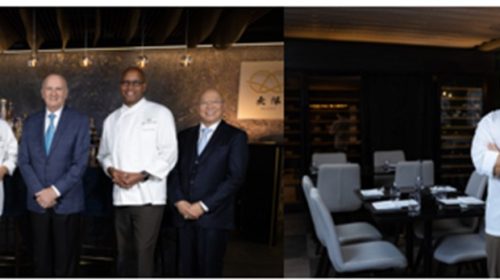150th Jubilee of Hawaii’s Last King
Born on November 16, 1836, Kalakaua ascended to the throne in 1874 and ruled until his death in 1891. His reign was characterized by a dedication to preserving Hawaiian culture, fostering economic development, and engaging in international diplomacy. Often referred to as the “Merrie Monarch” due to his love for music and dance, Kalakaua’s legacy extends beyond his political role, influencing the spiritual and cultural landscape of Hawaii.
David Laʻamea Kamananakapu Mahinulani Naloiaehuokalani Lumialani Kalakaua was born into the Hawaiian nobility, with a lineage traced back to the ancient chiefs of Hawaii. His father was High Chief Caesar Kaluaiku Kapaʻakea, and his mother was High Chiefess Analea Keohokalole. Kameʻeiamoku, the grandfather of both Kalakaua’s mother and father, was one of the royal twins alongside Kamanawa depicted on Hawaii’s coat of arms.
Kalakaua’s upbringing exposed him to the rich traditions and customs of the Hawaiian people, laying the foundation for his later commitment to preserving their heritage.
February 12, 1874, Kalakaua ascended to the throne, succeeding William Charles Lunalilo. His reign was marked by a deep sense of nationalism and a determination to safeguard Hawaiian identity in the face of Western influences.
King Kalakaua played a pivotal rola in the Hawaiian cultural renaissance of the late 19th century.
Recognizing the impact of foreign influences on traditional practices, he sought to revive and celebrate Hawaiian arts, language, and customs. Kalakaua was a patron of the hula, encouraging its resurgence as a cultural practice. He also supported the revival of the Hawaiian language, fostering a renewed sense of pride in the indigenous identity.
Under his guidance, the Iolani Palace became a cultural and intellectual hub, hosting gatherings that showcased Hawaiian arts, music, and dance. King Kalakaua’s commitment to preserving Hawaiian traditions laid the groundwork for the cultural resilience seen in the islands today. Today, the Iolani Palace is the spiritual and cultural epicenter for the Hawaiian people.
In addition to his cultural initiatives, King Kalakaua recognized the importance of economic development for the well-being of his kingdom. He embarked on a diplomatic mission, becoming the first reigning monarch to circumnavigate the globe. During his travels, he sought alliances and partnerships with other nations to ensure the economic stability and independence of Hawaii.
Despite these efforts, Kalakaua faced challenges, including the signing of the Reciprocity Treaty of 1875, which gave the United States exclusive access to Pearl Harbor in exchange for duty-free Hawaiian sugar. This marked the beginning of increased American influence in Hawaiian affairs.
King Kalakaua’s legacy endures in the hearts of the Hawaiian people and beyond. His commitment to preserving Hawaiian culture and fostering economic development laid the groundwork for the resilience of the islands’ unique identity. The Merrie Monarch Festival, an annual hula competition held in Hilo, Hawaii, is a testament to his influence on Hawaiian arts and culture.




